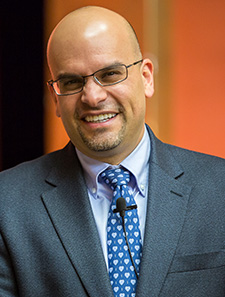COAST 2024 Virtual Systemic Conference
Register Now!
Friday, October 11, 2024 – Virtual Education Conference
Join COAST’s upcoming conference for a unique and enlightening experience with esteemed speakers. Connect with like-minded professionals and gain valuable knowledge for growth in your field. Register now to secure your spot.
See our line up of keynote presenters, and our conference agenda below!
Registration details are as follows.
- $125.00 – Non-COAST Members
- $25 – Non-COAST Students
- Free – COAST Members (As of January 01, 2024) Click here to become a member.
- All registrants (and COAST Members) will receive Conference Access instructions via email starting October 8, 2024.
- The recordings of the conference will be available shortly after the conclusion of the conference for those who register. More details to come.
Register below.
See the rest of our speakers here: Conference Speakers
Conference Agenda
All times are in Central Time Zone. Please adjust accordingly.
COAST Board.
Presenters:
Workshop Title:
Navigating the Crossfire: Therapy with Families in High-Conflict Legal Matters
Description:
Working with families involved in high-conflict legal disputes presents unique challenges compared to working with intact family systems. Parental conflict often disrupts the therapeutic process, interfering with treatment goals and the relationship between the child and the therapist. A lack of specialized training and education for professionals dealing with high-conflict families means these families frequently do not receive the support they need. When therapists are unprepared or uninformed about the complexities of these situations, they may unintentionally contribute to the problem. Additionally, therapists may face numerous ethical challenges when providing services to families in high-conflict legal cases. Parents, or even other professionals, may unknowingly request actions that fall outside of ethical practice, such as making recommendations on parenting time or custody. The heightened emotional intensity and complexity of these situations result in a higher number of ethical complaints. This workshop is designed to educate therapists who work with children and families on how to ethically navigate their role within a chaotic system while collaborating effectively with other professionals. Participants will also learn how to adjust their practice policies and procedures to better serve these families.
Learning Objectives:
At the end of this presentation, participants will be able to –
- Understand ways to remain objective and ethical in their role as therapists in legal proceedings.
- Engage in clinical interventions for children and families in high conflict to be able to apply them to their practice.
- Collaborate and consult with legal professionals who have mutual clients to increase positive outcomes.
15 Minute Break.
Breakout Option #1
Presenters:
Workshop Title:
Decolonizing Relationships: Navigating Cultural and Racial Borders.
Workshop Description:
Interracial relationships and societal acceptance of these relationships continue to increase in the US. However, the experiences of people in interracial relationships continue to be significantly impacted by discrimination, racism, and prejudice from society at large. These experiences are painful and challenging to the health of the relationship. Racism and prejudice might even be experienced by couples and exerted by others in various forms, including microaggressions, within the relationship itself as well as in the larger family systems within which the couple resides. This can be an additional challenge that experiences of racism and prejudice may at times even be experienced within the relationship itself between the partners. Talking about these experiences and processing them within the relationship is extremely difficult and painful but may be a necessary and crucial journey that couples can engage in as part of their healing and resilience as they weather the racism and prejudices of their larger social contexts. Contextual factors such as the historical context, the life span and developmental stages, and changing familial and generational roles and transitions, impact the multiple experiences of interracial couples and families as they navigate their relationships across the life span. The presentation will be based on the presenters’ personal narratives and descriptions of their own experiences as partners in interracial relationships. The personal narrative approach is being used as an effort to bring the actual lived experiences and meanings to the topic for this workshop and thus take a “decolonization” approach to presenting the scholarly work. Both presenters have conducted extensive scholarly work on interracial relationships and multicultural families but hope to approach this presentation from a personal lens in an effort to connect the research with lived meaning and realities. The presenters will focus on describing their own experiences of interracial relationships within the couple and familial context, the experience of intercultural differences and challenges such as racism and prejudice, navigating cultural and racial borders, and how partners and difficult conversations can be a source of healing, resilience, and resourcefulness – all within the context of multigenerational, life span developmental transitions and experiences. Case and personal examples and discussion of clinical implications for culturally informed and socially just approaches to working with IR couples will also be provided. This presentation will offer personal, scholarly, and clinical work guided by anti-oppressive, inclusive, and decolonization research and psychological principles when working with intercultural couples and their families.
Learning Objectives:
At the end of this presentation, participants will be able to –
- Describe the challenges related to racism and prejudice that interracial couples experience.
- Examine how these negative experiences can manifest within the relationship itself and across the lifespan of the individual partners and family.
- Explore how therapy can provide a safe and challenging environment for couples to have difficult and healing conversations about their experiences of racism and prejudice.
- Experience the value of difficult conversations and processing as a basis for healing and resilience in interracial relationships.
Breakout Option #2
Presenters:
Workshop Title:
ReThinking Systemic Supervision
Workshop Description:
The supervisor/supervise experience continues to change and evolve, especially during the last 4 years. This training focuses on the systemic supervisor and how to intentionally make the supervisory experience as robust and fulfilling as possible. This training aims to build confidence in the supervisor by looking at the supervisor relationship from a different perspective using mapping and stages of development activities.
Learning Objectives:
At the end of this presentation, participants will be able to –
- Discuss systemic supervision and what specific themes make systemic relational supervision unique.
- Increase confidence as a supervisor in seeing and understanding systemic/contextual your supervisees.
- Gain knowledge and understanding of the different stages of supervise development.
60 Minute Break for Lunch
Breakout Option #3
Presenters:
Workshop Title:
Building Strong Families: A Strength-based Family-life Education Model
Workshop Description:
Through a wellness- and strength-based family-life educational model, participants will learn the seven most common traits of strong, resilient families: Appreciation, Affection, Commitment, Creative Coping, Communication, Time Together, and Spiritual Wellness. This fun, upbeat, and informative research-based presentation has been presented to a wide range of clinical settings (outpatient and inpatient mental health and substance abuse), community groups, church groups, correctional facilities, and professional populations. This presentation provides information and ideas that professionals can utilize in their own lives, with their clients, and in the community. This workshop has been an effective means of combating the stigma of mental health by exposing community members to a licensed mental health professional in a solution-focused, non-threatening, upbeat milieu.
Learning Objectives:
At the end of this presentation, participants will be able to –
- Learn the seven most common traits of strong, resilient families with a brief introduction to the supporting research.
- Learn how to easily recall these traits as well as ways to practically apply them with clients.
- Gain suggestions for teaching these traits to client families and using them in their agencies or communities (i.e., integrating them into therapy.
Breakout Option #4
Presenters:
Workshop Title:
Who Are You Bringing in the Room? A Self of the Therapist Workshop on Working with Interracial, Intercultural, and Interfaith Couples and Families.
Workshop Description:
Therapists are important for conveying hope and warmth during therapy; that we believe in our clients and can hold our clients’ painful experiences. Being mindful of the therapist’s role and presence, therapists must explore their experiences of power struggles within the family, parental conflicts, lack of validation, and lack of intimacy in relationships. Therapists often work multifacetedly, navigating intrapersonal wholeness, mind, body, and emotional integration, communication, authenticity, and recognition of self, individuals, couples, families, and larger systems. For example, influences and attitude from family of origin (mesosystem), implicit rules of “not marrying outside race or ethnicity” or “partner has to meet cultural expectations in a spouse,” may contribute to a heightened expectation of the “perfect” relationship. In taking on the task of self of the therapist work, the therapist can deconstruct rigidity through personal awareness developed through self-reflection or personal therapy to promote flexibility with their clients. While both the Interracial Couple Questionnaire and the Multiple Heritage Questionnaire help the therapist to start this work, there must be a deeper dive (Henriksen et al, 2007 Watts & Henrickson, 1998).
Learning Objectives:
At the end of this presentation, participants will be able to –
- Define an intersectional ecological systems framework.
- Apply an intersectional ecological systems framework to their self of the therapist.
- Recognize self of therapist and cultural humility working with interracial, intercultural, and interfaith partners and couples.
- Apply and practice an intersectional ecological systems framework and self of therapist working with interracial, intercultural, and interfaith partners and couples.
15 Minute Break
Breakout Option #5
Presenters:
Workshop Title:
Healing eating disorders in our Latine communities: Contextual and Intergenerational Factors.
Workshop Description:
Eating disorders are prevalent among our Latine community. However, most diagnostic tools and treatment models do not consider cultural factors that may increase the risk of developing these highly lethal conditions. This can lead to delays in eating disorders detection and treatment, a worsening of symptoms, and relational barriers to treatment engagement in the future. Healing from eating disorders happens in relationships, connections, and larger contexts. A culturally sensitive approach to treating eating disorders among Latine creates an expansive space to better center the needs of the client served within their unique cultural and relational contexts. Intergenerational factors, like trauma, can be identified and explored as they contribute to eating disorder development, maintenance, and the healing process. Additionally, Latine living with eating disorders may connect with intergenerational strengths and ancestry in ways that uplift their humanity and wellbeing, honoring their present and future while paying respects and, potentially, grieving the past. Cultural sensitive approaches that consider the effects of xenophobia, racism, discrimination, and colorism may also facilitate the timely detection of eating disorders among Latine living with eating disorders while decolonizing how eating disorders are conceptualized and treated.
Learning Objectives:
At the end of this presentation, participants will be able to –
- Describe 2 theoretical models relevant to evaluating how experiences of racism/ethnicism, discrimination and trauma contribute to eating disorders risk among Latine.
- Evaluate how pervasive oppressive messages and systems, including historical sociocultural political ones, impact practice and specifically eating disorders care accessibility for Latine.
- Describe 3 barriers and facilitators to treatment relevant to serving Latine healing from eating disorders.
Micro-Webinar Option #1
Presenters:
Workshop Title:
Gender disparity in the MFT profession.
Workshop Description:
Gender disparity in the Marriage and Family Therapy (MFT) field intersects with the critical aspects of mental health and overall well-being. Furthermore, it influences how we think, feel, and behave, impacting every aspect of our lives, from personal relationships and work performance. However, the underrepresentation of men in the MFT field may influence the provision of mental health services and access to care, especially for male clients. Addressing mental health concerns proactively can lead to improved productivity, creativity, and satisfaction in both personal and professional realms. When examining previously conducted research, studies have investigated men’s experiences with mental health, however very few have touched on men’s experiences in the mental health professions. Despite efforts to promote inclusivity and diversity, a significant gap persists in the representation of men within MFT. This gender disparity not only impacts the composition of the MFT workforce, but also influences therapeutic approaches, client experiences, and the overall advancement of the profession. In this research, we will delve into the complex factors contributing to the underrepresentation of men in the MFT field, explore its implications, and consider strategies for fostering greater gender diversity and equity within this vital domain of mental health practice.
Learning Objectives:
At the end of this presentation, participants will be able to –
- Describe a brief history of men in mental health.
- Explain our processing in collecting data from men covering their perspective on working in mental health.
- Explain our hypotheses related to the dearth of men in MFT.
Micro-Webinar Option #2
Presenters:
Workshop Title:
Emotionally-Focused Couple Therapy and LGBTQ+ Populations.
Workshop Description:
Each letter in the LGBTQ+ alphabet (Lesbian, Gay, Bisexual, Trans, Queer, etc.) has its own unique set of challenges and minority stressors. To assume that every minority population experiences the same stressors is both incorrect and ill-informed. EFT would be even more accessible to queer populations by testing its efficacy of long-term satisfaction by researching each individual letter as well as incorporating the accompanying unique minority stressors into the model. Sexual minority stressors have such potential to be integrated into this model specifically so that they can be emotionally processed and consolidated so that the couple can handle them as a team. The research available testing the efficacy and effectiveness of EFT and queer couples is minimal at best. EFT has so many humanistic and normalizing approaches that have the potential to properly hold space for the minority stress and trauma triggers that are present in many LGBTQ+ relationships. This proposal is a call to not only expand the research already available for EFT and queer couples, but it also is an invitation to be more inclusive in future research. This presentation will address the research needed in this area as well as provide an understanding of the LGBTQ + client populations and couples.
Learning Objectives:
At the end of this presentation, participants will be able to –
- Describe that LGBTQ+ populations are not a monolith.
- Explain the need for EFCT to be researched and applied more inclusively to queer couples.
- Discuss the number of minority stressors that each population faces through an attachment lens.
5 Minute Break
Micro-Webinar Option #3
Presenters:
Workshop Title:
Infidelity Decision Making by Emerging Adult Women: A Grounded Theory Study
Workshop Description:
The session will explore women’s decision-making processes with infidelity. The presenters will share the results of a qualitative analysis of interviews with 21 women regarding the rationale, justification, and reasoning behind their decision to engage in infidelity. The session will also address the clinical implications when working with infidelity.
Learning Objectives:
At the end of this presentation, participants will be able to –
- Describe women’s experiences and thought processes when deciding to engage in infidelity.
- Discuss the relationship and contextual factors in a woman’s decision to participate in infidelity.
- Evaluate the research methods used to analyze women’s decision-making process to do infidelity.
Micro-Webinar Option #4
Presenters:
Workshop Title:
Review of a Qualitative Study Highlighting the Support Needs of Siblings Who Experience A Sibling’s Substance Use.
Workshop Description:
Workshop Participant’s will be invited to a presentation of the results of a phenomenological study of 15 siblings who share their experiences related to their sibling’s substance use. The themes that where identified within the data of this study include safety, chaos, relational stress, emotionality, avoidance, and movement. These themes where presented as the SCREAM Model which can be used to assess, educate, and treat siblings in families where one or more siblings have a substance use issue. It is paramount that mental health professionals become aware of how experiencing a sibling’s substance use puts a high cost on the mental health of of other siblings in a family. Moreover, we must recognize that siblings have unique support needs when it comes to addressing stress related to having a sibling actively engage in using substances. A brief review of the state of the current literature on the topic will highlight the gab in the current literature around sibling needs. Time will be allocated for dialogue between workshop participants and the presenter which will allow a sharing of experiences and ideas with the hope of enhancing awareness of the support needs of siblings in addiction treatment.
Learning Objectives:
At the end of this presentation, participants will be able to –
- Review the current state of literature on the need for mental health support of siblings who are experiencing another sibling’s substance use.
- Present the S.C.R.E.A.M. model developed as an assessment, treatment planning, and advocacy tool designed to help professionals address the needs of siblings in families affected by another sibling’s substance use.
- Provide opportunity for dialogue on the importance of supporting siblings in treatment settings.
Micro-Webinar Option #5
Presenters:
Workshop Title:
Opportunities Missed: The Impact of Power in Supervision and Supervisee Self-Disclosure Within Academia
Workshop Description:
Clinical supervision is a requirement for Marriage and Family Therapists (MFTs) to hone their skills and ensure ethical practice. Although there is research on supervision, reports often focus on supervisee experiences that occur at the associate license level rather than pre-licensed clinicians still in a training program. Despite the supervision research across fields, we still know little about what makes supervision effective (Rousmaniere et al., 2016). However, we do know that the Supervisor Working Alliance (SWA) is a common factor of effective supervision. This alliance becomes complex when we consider the intersectionality of gender, race, culture, hierarchal structures, and the inherent power dynamics that are at play (Green & Dekkers, 2010; McKibben et al., 2019). Added to this, pre-licensed clinicians receiving clinical supervision in the world of academia experience compounded power structures as their supervisors are often their professors or academic advisors. Therefore, one of the reasons that supervision may be less effective for some is due to these power dynamics hindering the alliance. More specifically, the effects of power differentials and dual relationships may inhibit supervisee disclosure of clinically imperative self-of-the-therapist challenges.
Learning Objectives:
At the end of this presentation, participants will be able to –
- Identify common barriers that clinical supervisees face, such as misogyny, racial prejudices, and power differentials due to the hierarchical nature of the supervisory relationship.
- Discuss issues that may arise due to the intersectionality of contextual factors and power differentials in academic settings that limit a supervisee’s ability to disclose clinically imperative self-of-the-therapist issues.
- Explore techniques that bring awareness to their biases and way-of-being in the supervisory working alliance and facilitate safety required for supervisee disclosure.
15 Minute Break
Presenters:
Workshop Title:
Healing through Parenting: Integrating Science, Culture, and Social Justice in a Parent-Based Intervention for Latinx Populations
Description:
Mental health services for low-income Latinx immigrant populations must be informed according to cultural values, careful consideration of contextual challenges, and social justice principles. In this presentation, Dr. Parra-Cardona will present a 15-year applied program of parenting prevention services research focused on the implementation of a culturally adapted parenting intervention with Latinx immigrant families that have experienced a variety of contextual challenges. The model integrates a culturally adapted parenting program (i.e., GenerationPMTO), augmented by brief strategic interventions to address racial discrimination, biculturalism, and cumulative trauma. The presenter will reflect about the need to inform family therapy practice for underserved immigrant populations by striving to achieve a balance among adherence to rigorous theoretical and scientific standards, as well as cultural relevance and social justice principles.
Learning Objectives:
At the end of this presentation, participants will be able to –
- Coming Soon!
Become a Conference Sponsor
-
Conference Sponsorship
$100.00 – $1,000.00Price range: $100.00 through $1,000.00 Select options This product has multiple variants. The options may be chosen on the product page





